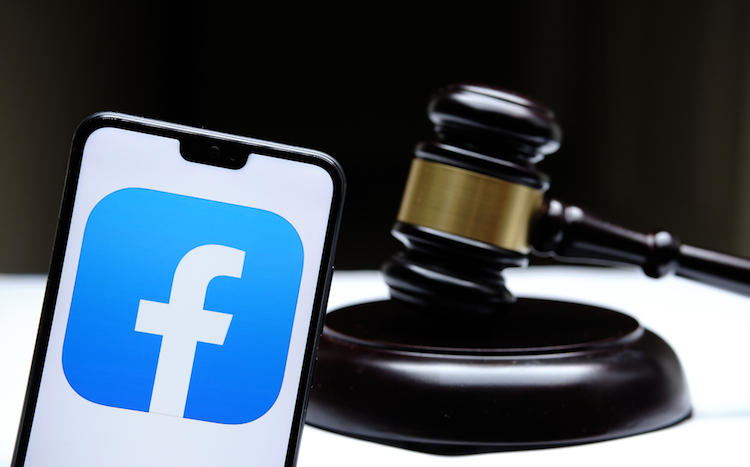Doctrine of laches, 'speculative' claim doom antitrust suits against Facebook; FTC gets second chance

Image from Shutterstock.
In a pair of decisions Monday, a federal judge in Washington, D.C., tossed antitrust lawsuits filed against Facebook by the Federal Trade Commission and the vast majority of state attorneys general.
U.S. District Judge James Boasberg of the District of Columbia, tossed the complaint filed by the FTC as “legally insufficient.” But he allowed the agency to file an amended complaint with more facts that would support its assertion of monopoly power.
Boasberg tossed the other case—filed by attorneys general for 46 states, the District of Columbia and Guam—without leave to amend.
The states and the FTC had argued that Facebook maintained a monopoly through two kinds of actions. The first: Facebook acquired firms such as Instagram and WhatsApp that could erode its dominance. The second: Facebook adopted policies that prevented interoperability between Facebook and certain apps that could become competitors.
Both suits sought divestiture or reconstruction of Facebook’s businesses, as well as orders banning similar conduct in the future.
In the FTC suit, Boasberg said, the agency claimed that Facebook has a dominant share of the market for “personal social networking services” in excess of 60%. But the “naked allegation” was unsupported by the metrics or methods used to calculate the number, and the claim is “too speculative and conclusory to go forward,” Boasberg said.
The FTC had alleged that Facebook maintained a monopoly in violation of Section 2 of the Sherman Act. The agency sued under a section of the FTC Act that allows it to seek an injunction against an entity that “is violating” or “is about to violate” the antitrust laws.
The states had also alleged a violation of Section 2, as well as a violation of Section 7 of the Clayton Act, which bars acquisitions that substantially decrease competition.
Boasberg said the FTC’s assertion of market dominance “might (barely) suffice in a Section 2 case involving a more traditional goods market, in which the court could reasonably infer that market share was measured by revenue, units sold or some other typical metric. But this case involves no ordinary or intuitive market. Rather, [personal social networking] services are free to use, and the exact metes and bounds of what even constitutes a PSN service—i.e., which features of a company’s mobile app or website are included in that definition and which are excluded—are hardly crystal clear.”
In the other decision, Boasberg said part of the states’ suit was barred by the doctrine of laches, which bars relief for those who sleep on their rights.
“Ultimately, this antitrust action is premised on public, high-profile conduct nearly all of which occurred over six years ago—before the launch of the Apple Watch or Alexa or Periscope, when Kevin Durant still played for the Oklahoma City Thunder, and when Ebola was the virus dominating headlines,” Boasberg wrote. “The complaint’s allegations themselves make clear that the states could easily have brought suit then.”
Boasberg also said in both decisions that Facebook’s policy of preventing interoperability with competing apps fails to state a claim under current antitrust law, as “there is nothing unlawful about having such a policy.”
Hat tip to Politico, which had coverage of the decision, along with the New York Times.
The cases are State of New York v. Facebook Inc. and Federal Trade Commission v. Facebook Inc.
Write a letter to the editor, share a story tip or update, or report an error.


